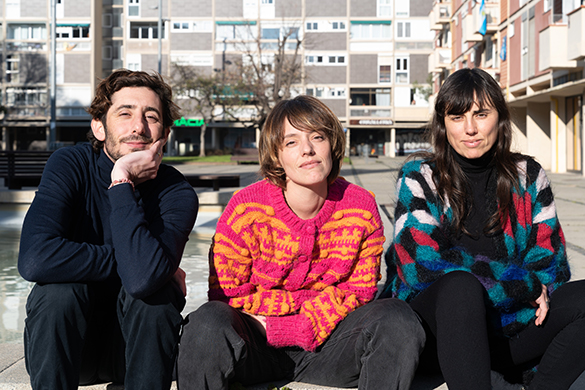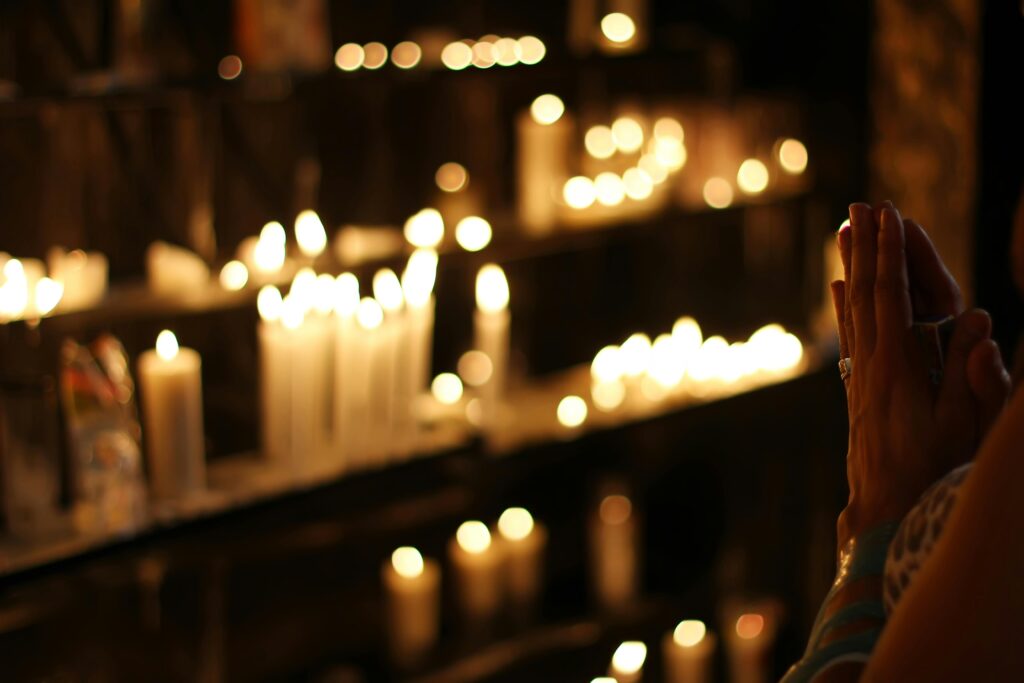Motherhood as a hindrance that justifies abortion and forgetting the moral value of care
"Mammal"

The Spanish filmmaker, Liliana Torres, raises a conflicting reflection on motherhood in her film “Mammal”, regarding a woman’s decision not to be a mother to preserve happiness in the couple and develop her professional career. The ethical contradictions of the film are multiple because in the name of the determination not to procreate it justifies abortion, it stigmatizes women and couples who decide to have children and, in a certain way, it supports a thesis about care as a hindrance and personal sacrifice as fundamental human values, such as interdependence, responsibility towards others and the moral obligation to care, typical of a human society that puts life at the center, are declining.
The plot of the film “Mammal” makes us witness the life of Lola (María Rodríguez) and Bruno (Enric Auquer), a couple who identifies happiness with short-term pleasure, the absence of worries and the avoidance of any pain or suffering as vital ends in themselves. An unexpected pregnancy puts the relationship in crisis. Lola does not want to be a mother, a decision that she argues is due to the absence of maternal instinct, as well as favoring the continuity of a hedonistic type of relationship and dedicating herself fully to her profession as an art teacher. The female protagonist feels challenged by her external expectations—her sister and most of her friends have children—and she resists facing her fears and insecurities. However, she cannot prevent her subconscious, through dreams and nightmares, from indicating the existence of unresolved problems, concerns, and underlying unrest in her real life. The representation of the dream incorporates the aesthetic resource of collage, connected with her profession.
For his part, Bruno had never imagined himself as a father, willingly accepting his partner’s decision not to procreate, without carrying out a personal introspection about the consequences and whether, really, it was what he wanted as a life project. Now, the uncertainty that, due to Lola’s age, this pregnancy is, perhaps, the last opportunity to be naturally parents together, shakes the initial tacit agreement and the relationship model. The determination to abort, adopted alone by the woman, causes the film to end up pivoting on the three days of reflection that she has to wait to go to the clinic, since filming takes place before the reform of the abortion law. 2022.
With “Mammal”, Liliana Torres completes her film trilogy about relationships and family life that make up the previous films Family Tour (2013) and What We Did Wrong (2021). The filmmaker has commented in various interviews promoting the film that her main objective is to destigmatize non-motherhood, weave networks of understanding about this decision and address some of the reasons that may lead women to decide not to have children. Torres superficially outlines the socioeconomic difficulties that condition motherhood in some scenes of “Mammal”. Specifically, in Lola’s visits to her mother in Montbau and to her best friend Paula (Anna Alarcón), who lives in a subsidized home in the Barcelona neighborhood of Torre Baró, in front of other friends of the couple who can afford to live in the neighborhood well-off Eixample.
The ethical contradictions
The film’s approach raises serious ethical conflicts, such as abortion, and fails to carry out an in-depth and sensitive exploration of the choice to live without children, the meaning of motherhood today or the social, material and political conditions that influence the delay, increasingly, of the age at which one has the first child. In fact, Spain is one of the European countries with the lowest birth rate, and many women postpone becoming mothers beyond the age of 40. This circumstance also encourages the use of assisted reproduction techniques that pose ethical challenges.
In many moments, the film falls into stereotypes that damage female sorority and slips subliminal ideological messages, in a humorous tone, about care as a hindrance, burden and personal sacrifice that undermine fundamental human values and, in some way, add a negative social value to those couples who include procreation as a substantial part of their shared life project.
Having or not having children is not a right, even though there is plenty of rhetoric that makes it considered as such. Nor is it a social imposition. It is a decision that, like all those we make, is subject to ethical deliberation because it pursues ends and resorts to means that cannot be dissociated from the notions of good or evil, moral precepts or values such as justice, solidarity, common well-being and genuine happiness founded on the flourishing of the best human capacities to live a meaningful life with others¹.
From a personalist bioethics, the suppression of a human life in the name of freedom of determination to project an autonomous way of living cannot be justified. The defense of life prevails over the right to freedom, and this must responsibly take charge of both one’s own life and that of others, especially when the other does not have the capacity to protect his or her interests. An unquestionable biological fact is that the embryo is a developing human subject in which the value of the individual person is already ontologically present and deserves respect and protection. If biological development is not interrupted, the new human being continues its programmed, continuous and intrinsically autonomous cycle between conception and birth².
The philosopher Victoria Camps emphasizes that, currently, women are infinitely freer with respect to the decision to be mothers. However, “greater freedom must be accompanied by greater responsibility that considers what price to pay, individually and collectively, for that greater freedom”³. Simone de Beauvoir’s repeated thesis, “a woman is not born, but rather she is made,” made women begin to think that motherhood was an option and not an inescapable destiny, separating sexuality from procreation. Today, self-referential logic and dominant individualism are confused with the promotion of freedom and, on many occasions, responsibility is considered something secondary or of lesser importance.
The film misses the opportunity to go to the root of a model of social life, marked by materialism and consumption, that privileges production over reproduction and paid work over unpaid work. Nor does it delve into superficial policies that do not fully protect families who want to have children and that influence conflicting family conciliation, job inequality or the insecurity that mothers can resume their professional desires without difficulty.
Finally, the most precious and valuable thing about motherhood is the human experience of care and a unique relationship marked by interdependence, responsibility and commitment to a fragile and vulnerable being who needs love and donation to grow and develop a healthy way. The awareness that we are vulnerable and dependent beings is not a defect, but rather the opportunity to build a more humane, fair, egalitarian society that is open to welcoming the most vulnerable. Children are not a punishment, but gifts that deserve respect, affection and responsibility. We sabotage our human nature when we see caring for others as a hindrance, burden or weight, and we elevate hedonism and fierce individualism as an expression of maximum success and triumph.
Amparo Aygües – Master’s Degree in Bioethics from the Catholic University of Valencia – Member of the Bioethics Observatory – Catholic University of Valencia
***
[1] Curtain, A. (2019). What is ethics really for? Paidós.
[2] Sgreccia, E. (2012). Manual of Bioethics I. Fundamentals and biomedical ethics, chap. X. BAC.
[3] Camps, V. (2019). Think about motherhood. Víctor Grífols i Lucas Foundation, nº50.
Related

“Praying is an immense privilege”
José Miguel Ponce
17 April, 2025
3 min

Cardinal Felipe Arizmendi: Jesus Continues to Suffer
Felipe Arizmendi
17 April, 2025
4 min

The classics educate in humanity
Francisco Bobadilla
16 April, 2025
3 min

Words That Illuminate Our Crosses
Mario J. Paredes
16 April, 2025
6 min
 (EN)
(EN)
 (ES)
(ES)
 (IT)
(IT)

